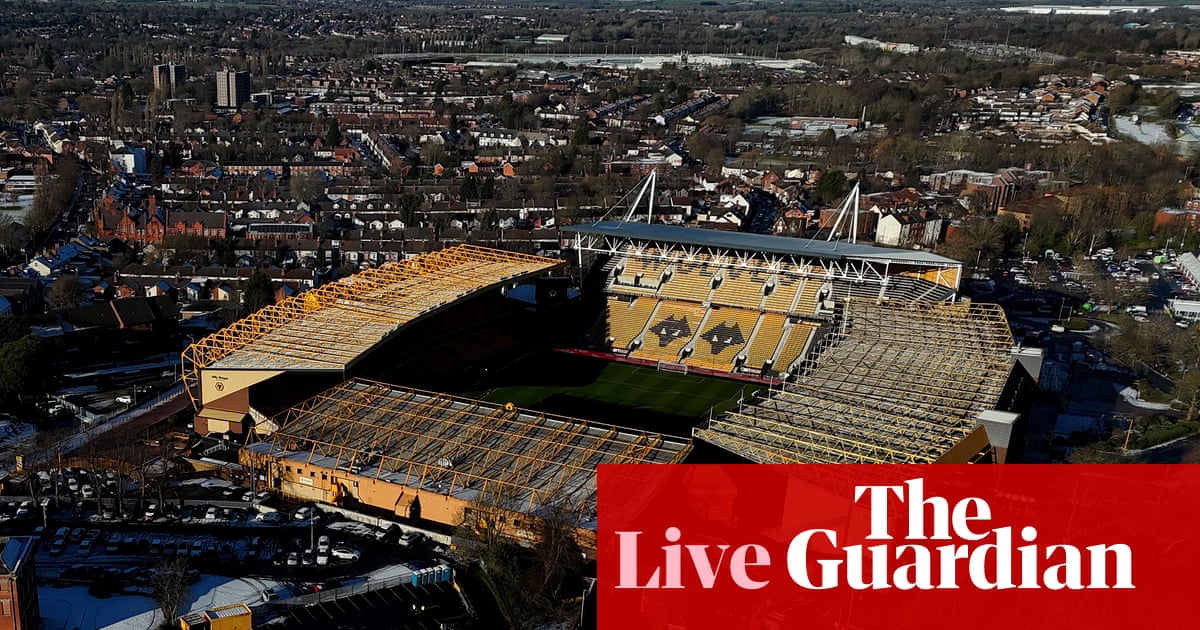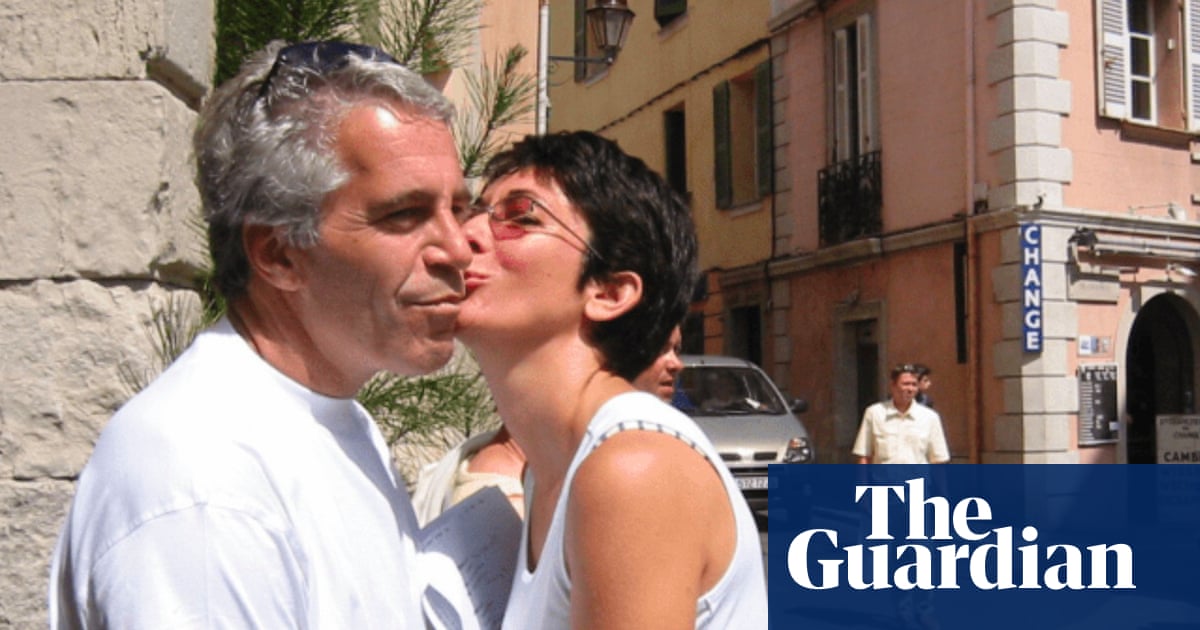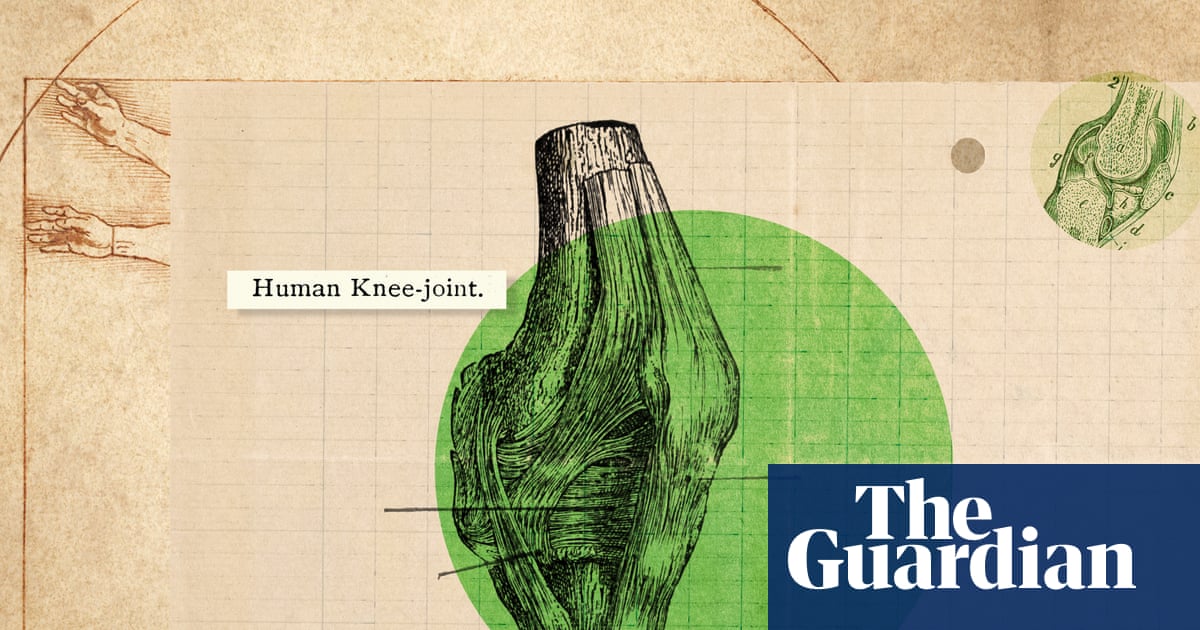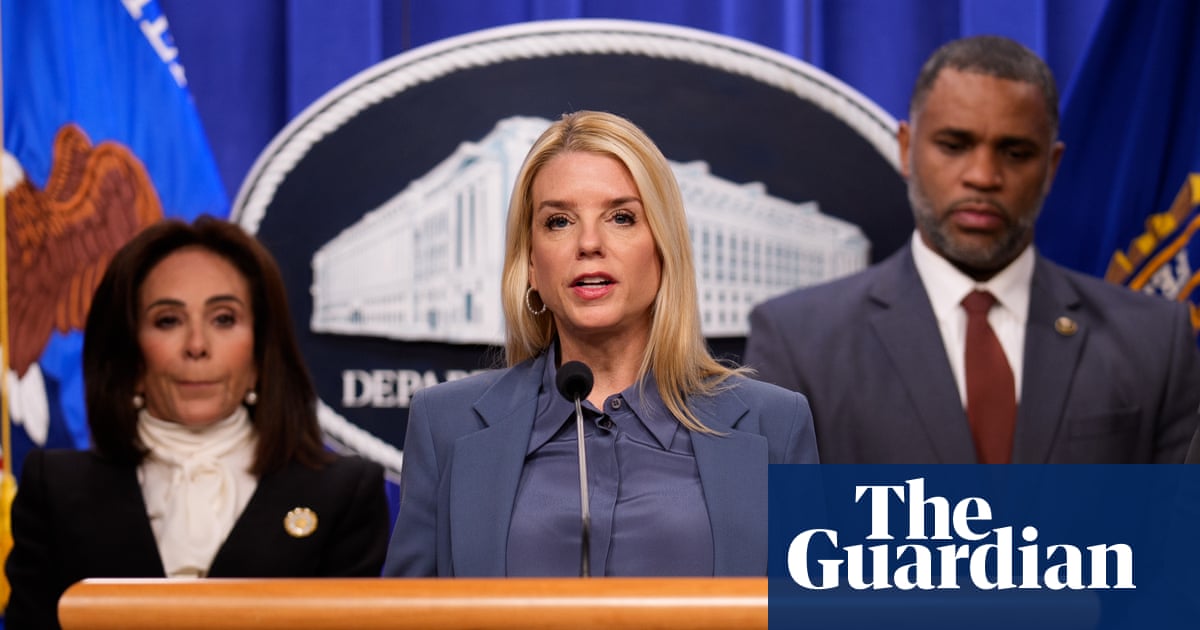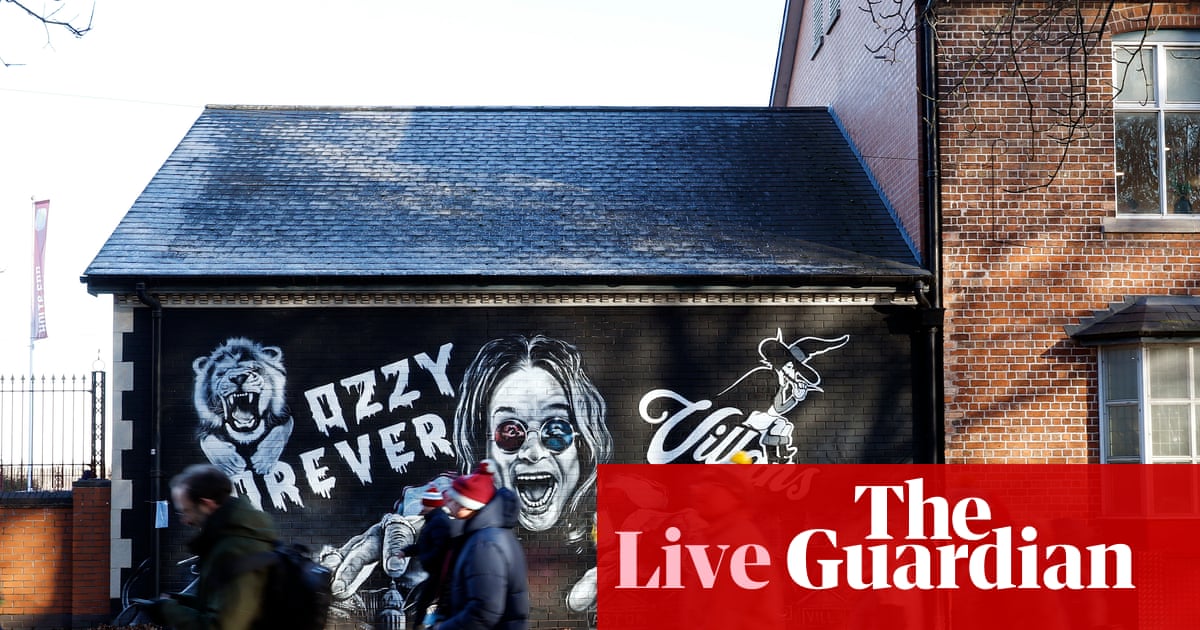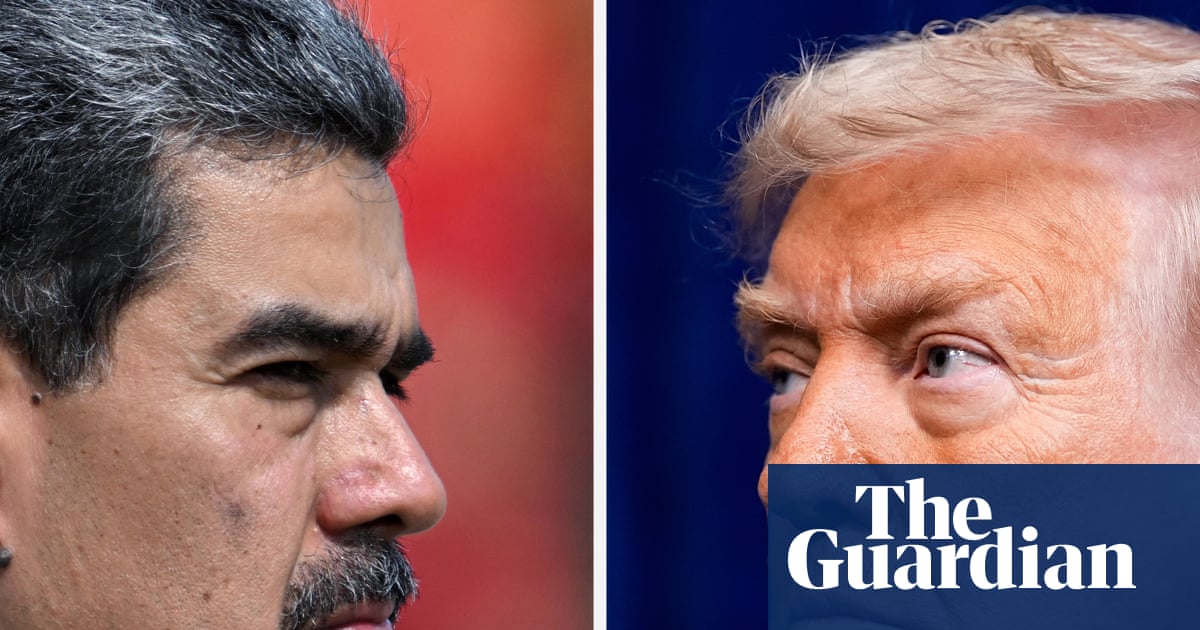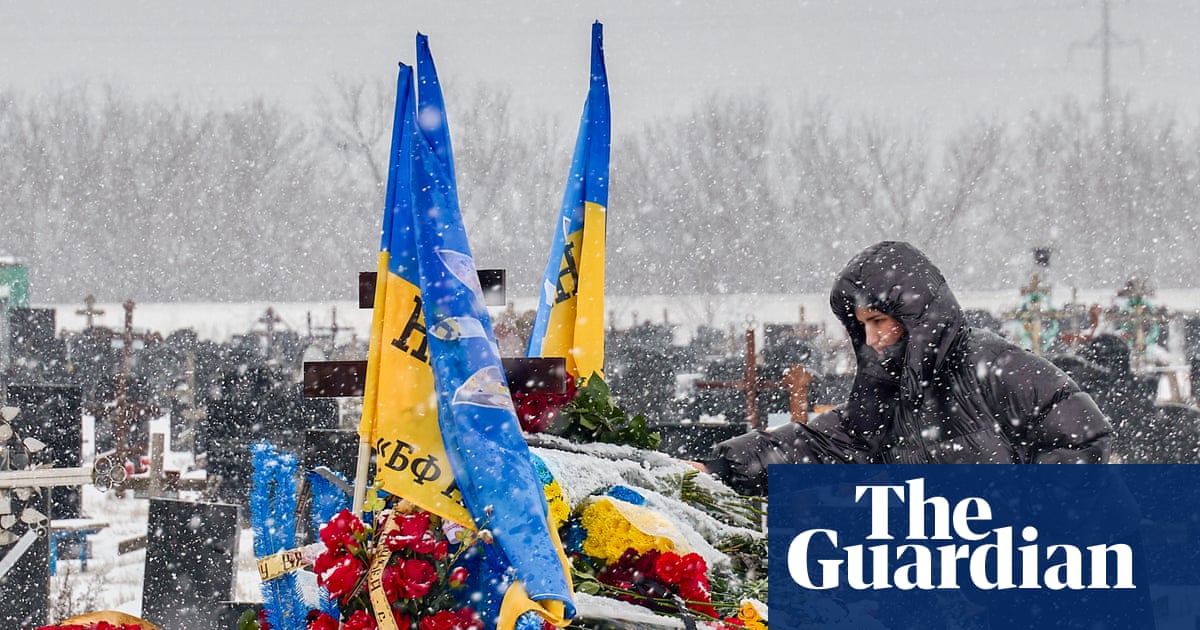Welsh National Opera have opened their autumn season with the production Opera North premiered in 2018. So this Tosca is neither new to the company nor helped by the attention focused on last week’s Royal Opera House staging in which Anna Netrebko commanded the headlines. Here, the focus was on the Welsh-Ukrainian Natalya Romaniw, who three years ago made an acclaimed ROH debut in the career-defining title role. This was emphatically Romaniw’s night, every inch the absolute diva, in ravishing voice and investing her characterisation with such fine nuances of gesture and colouring of the words as to hold one riveted. It was certainly worthy of Sarah Bernhardt, for whom Victorien Sardou wrote his original play and whose performance inspired Puccini to compose his opera.
Puccini’s faithfulness to the specific Roman locations and the historical facts of June 1800 in this period of the Napoleonic wars, would seem to preclude a contemporary setting elsewhere. Yet director Edward Dick’s allusions to the rise of the far right and the thuggery of the regime which chief of police, Baron Scarpia, represents are all too chillingly resonant of the political machinations and skullduggery that have only escalated globally in the seven years since Dick conceived his approach.
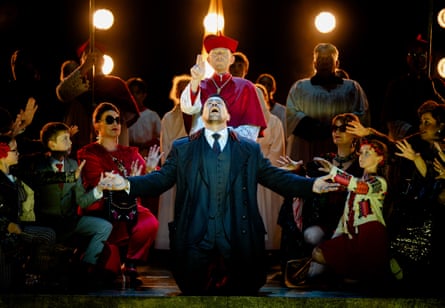
In darkly lit sets, a gilded Madonna-adorned cupola – differently angled – does duty for all three acts in a nod to the Rome of the past, with banks of electric candles hinting at the aura of Catholicism, Scarpia’s manipulative lechery could not be more current, while conveying the torturing of Tosca’s lover – the painter Cavaliere Cavaradossi – to her via Scarpia’s laptop livestream only heightened the tension. Dario Solari’s Scarpia may not have been quite as sinister or oleaginous, nor as imposing in the act 1 Te Deum as the most demonic of interpreters, but his animal instincts when standing as though caged within the confines of his four-poster bed had the requisite frisson of horror. Romaniw’s lithe grace and agile-as-a cat athleticism in avoiding his predatory advances was matched by the musical grace and soul-searching of her Vissi D’arte prayer, giving her the courage to wield the knife and stab him several times.
Andrés Presno’s Cavaradossi was a bit too shouty for comfort, but the tenderness of his adoration of Tosca was apparent in the final act and in their last duet – sporting their tattoos of republican and Bonapartist allegiance – they raised fists and voices in vibrant exultance. Equally defiant was Tosca’s leap to her death, standing in a Leonardo Vitruvian woman pose silhouetted against the rising sun before falling backward, heart broken but spirit uncrushed.
It was another sign of the difficult times facing WNO that they used Tony Burke’s reduced score, but tribute to the musicians that they could still bring richness to the sound, with conductor Gergely Madaras finely attuned to the dramatic ebb and flow of Puccini’s score.

 3 months ago
56
3 months ago
56
